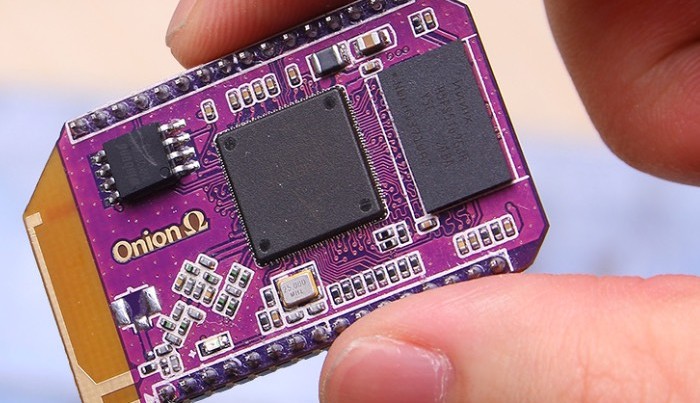The Onion Omega
April 22, 2015
on
on

Judging by its runaway funding success on Kickstarter (already over twelve times its initial target with two weeks still to run) the Onion Omega seems on course to emulate the popularity of the Arduino and Raspberry Pi platforms. Their Kickstarter page describes how the Omega concept was born after the team attempted to build a connected thermal-printer integrated with Evernote so that they could print physical copies of their notes and to-do lists. It took a little over a week to complete the project using an Arduino and Ethernet shield, and they noted three things they wished were different:
For the Omega design they also implemented features found on existing platforms such as Linux on the Raspberry Pi and also the Raspberry Pi's package management system which simplifies installing new software packages to just one command. Tessel's Javascript Environment allows embedded hardware to be programmed using Node.JS. They have also designed a shield-based expansion system similar to the Arduino and use Spark Core's built-in WiFi connectivity and Web-IDE, cross-compile environment and deployment workflow.
- As web developers, they weren't terribly productive in C/C++.
- Updating the firmware was a lot of work, especially when trying to fix the little bugs after the thermal-printer had been setup.
- It took a lot of hacking to get the Arduino to talk to Evernote. Bare metal devices like the Arduino are not optimized for Web.
For the Omega design they also implemented features found on existing platforms such as Linux on the Raspberry Pi and also the Raspberry Pi's package management system which simplifies installing new software packages to just one command. Tessel's Javascript Environment allows embedded hardware to be programmed using Node.JS. They have also designed a shield-based expansion system similar to the Arduino and use Spark Core's built-in WiFi connectivity and Web-IDE, cross-compile environment and deployment workflow.
Read full article
Hide full article

